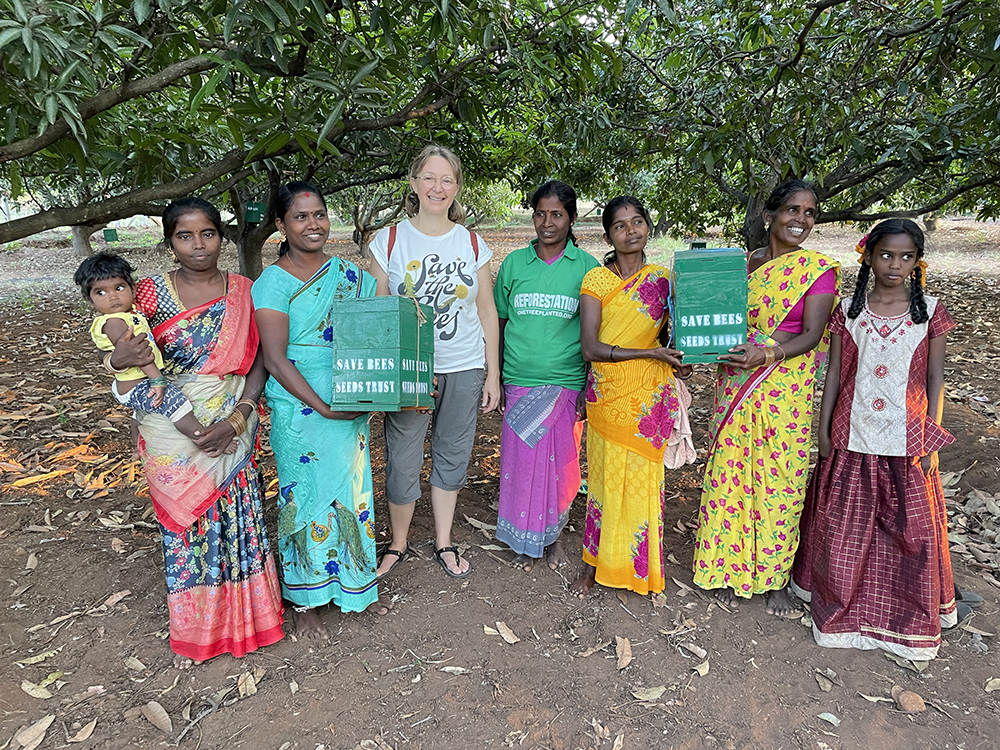SIANI’s current expert groups have been active for half a year, driving food systems projects in different parts of the world. Here is a report on their progress so far and a look at their plans for the rest of the year.
One of SIANI’s most important activities is the expert groups programme, where the network forms partnerships with multisector groups active in low-income contexts. The expert groups run forward-looking projects related to sustainable, rights-based and inclusive food systems. In addition, they raise awareness of emerging issues and share knowledge and insights with the SIANI network.
The four groups currently active kicked off their projects in early 2024 – here is an update from the first six months.
One Health in Burkina Faso
The group A One Health approach to WaSH in Burkina Faso champions a holistic perspective that recognises the connections between human, animal and environmental health. The project looks at the benefits of applying this One Health approach to water, sanitation and hygiene (WaSH) interventions in rural settings.
Led by the Agency for Training, Research, and Expertise in Health for Africa (AFRICSanté) in Burkina Faso, the group focuses on two themes. One area of interest is how to reduce the risk of diseases spreading from animals to humans, so called zoonoses; the group explores ways of integrating zoonosis-related risks into water, sanitation and hygiene (WaSH) interventions. The second core topic is how excreta can be reused in agricultural production, drawing on pilot studies in Burkina Faso.
During the first half of 2024, the expert group has constituted itself, and started working on both topics. Initially, much focus has been on literature reviews, on zoonosis-related risks and WaSH interventions, as well as on policies and experiences of transformation and reuse of excreta to improve agricultural production in Burkina Faso. The group is also actively engaging with WaSH stakeholders and authorities in Burkina Faso to explain the project’s objectives.
Next, the group will gather more input from beneficiaries and finalise the literature review. The results will be presented in two reports as well as in a workshop in Burkina Faso.
Agrobiologicals in East Africa
The East African Agrobiologicals working group addresses one of the most critical issues for African smallholders – how to sustainably increase the productivity of their farms. The project convenes a multidisciplinary expert group on agrobiologicals to catalyse and support use of biobased agriculture inputs (agrobiologicals) to intensify production on smallholder farms in Ethiopia, Kenya and Tanzania. Furthermore, the group seeks to encourage local production of agrobiologicals.
In the first months, the group has held an inception workshop to develop a theory of change and a work process. Initially, they focus on identifying and mapping agrobiologicals actors in the region. Each participating country are now initiating national stakeholder dialogues.
The group are consolidating knowledge in a background paper on agrobiologicals. The more long-term aim is to launch a knowledge platform with different resources on the topic, and to connect agrobiological stakeholders in the region.
Land rights in Latin America
The Land rights in Latin America group seeks to develop a regional perspective on the connections between the environment, climate change, food, peace and security. The group, consisting of researchers, activists and NGOs from 10 Latin American countries, was founded in 2022 with the support of the Stockholm International Peace Research Institute (SIPRI) and the Friedrich Ebert Foundation (FES).
In 2024, the land rights group published the report Environmental and Climate Justice, and the Dynamics of Violence in Latin America: Perspectives from a Regional Working Group on Climate Change, the Environment, Peace and Security in Latin America. Three members of the group – Antonia Berrios, Carolina Hidalgo, and Pedro Landa – travelled to Germany and Sweden in May to present their findings. They engaged with policymakers in Berlin and Stockholm and participated in panel discussions at the Stockholm Forum on Peace and Development. Additionally, the members participated in a workshop on aid effectiveness in fragile contexts and participated in a SIANI event at the Stockholm Environmental Institute.
This summer, the expert group will publish an annex to the report with a focus on food security and land rights. The content is based on input from a previously conducted baseline survey and a series of dialogues during 2022 and 2023. The group plans to engage in additional meetings with policymakers and has applied to organise a hearing at the Inter-American Commission on Human Rights.
Pollination in Asia
The group Pollination knowledge exchange for food, nutrition and livelihood security in South and Southeast Asia works with local communities to explore the potential of beekeeping. Coordinated by the Swedish University of Agricultural Sciences, SLU, the group seeks to understand more about how beekeeping can strengthen pollination, food security, nutrition, and livelihoods.
Together with local actors, the group has established six Living Labs in India, Sri Lanka, Laos and Nepal. The aim is to learn from experience and engage with relevant stakeholders. The group will for example use surveys to study consumer attitudes and honey market value chains. They will also explore the role beekeeping can play as part of emergency livelihood interventions.
The knowledge gained will help the group formulate transformative policy recommendations and share valuable practices for pollination services and beekeeping.
